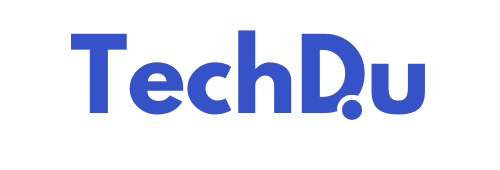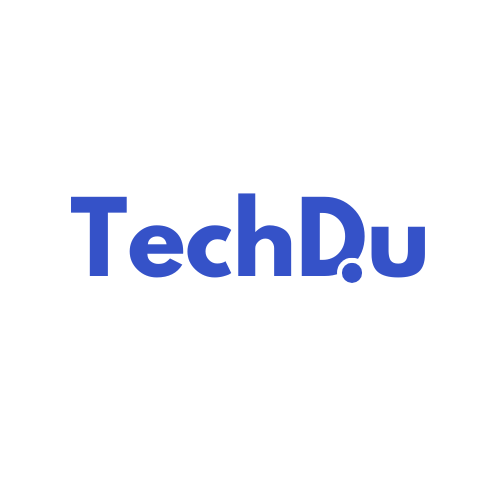Privacy-first analytics means understanding how to best analyze your data while respecting and protecting your user’s privacy via consent management platform. It helps keep sensitive information safe by using techniques such as data anonymization, encryption, and differential privacy.
This transparency not only builds trust with users, but it better positions organizations to comply with regulations such as HIPAA and GDPR. For healthcare professionals, privacy-first analytics addresses critical concerns around patient data security while enabling valuable insights to improve clinical workflows and outcomes.
Build privacy-first solutions into your workflows. In this manner, you are able to meet the demands for actionable data without putting personal information at risk.
What is Privacy-First Analytics?
Privacy-first analytics adopts strategies to prioritize user privacy, including removing the invasive tracking practices often attached to traditional analytics tools. This is a striking departure from current practice n consent management platform. It doesn’t retain or collect personally identifiable information (PII), and it focuses on privacy-first methods, such as excluding third-party cookies.
These tools, such as Simple Analytics, prioritize the collection of basic, necessary data and are designed with data protection regulations in mind, including GDPR.
Defining the Ethical Approach
At the heart of privacy-first analytics is transparency. Ethical data collection includes being upfront with users about what data is being collected and how it’ll be used. Consent is fundamental, as users must always have the ability to decide if their data is in scope.
For one, privacy-first tools offer opt-in functions that prioritize personal consent. Responsible data use further strengthens consumer trust, ensuring information serves only its intended purpose without being sold or shared with third parties.
Contrasting Traditional Tracking Methods
This is in contrast to traditional analytics, which rely on invasive practices such as third-party cookies and user profiling. Such practices only serve to perpetuate the cycle of unauthorized data selling.
Privacy-first alternatives immediately minimize risk by relying on anonymized and aggregated data. For example, Simple Analytics automatically deletes all traffic data after 30 days, making your website even more secure.
In fact, traditional tools like Google Analytics still make up 85% of the market. As a result, more businesses are adopting privacy-first solutions that offer increased transparency and ease of use.
Core Principles Guiding Design
User autonomy, data minimization, and robust security measures are at the core of privacy-first analytics. Plus, anonymization protects user identities by preventing the identification of individuals from aggregated data.
Additional features like encryption and two-factor authentication provide extra layers of security. We put ethical design first, keeping it simple and private by default to deliver an honest, transparent experience perfectly aligned with today’s compliance requirements.
Why Ditch Old Analytics Habits?
egacy analytics platforms like Google Analytics have ruled the online-tracking space for decades. It powers more than 85% of the Internet and the fortune of its tracking codes. There’s an increase in skepticism toward Google’s data practices. This compliance, propelled by the wave of privacy class action lawsuits, shows the inherent need to rethink these age-old practices.
In the current digital landscape, privacy expectations are evolving at breakneck speed. It’s time for businesses to consider how dangerous it is to depend on invasive tracking systems.
The Problem with Invasive Tracking
This invasive tracking creates a poor user experience by collecting more information than necessary without the user’s consent. Users are more sensitive to how their activity online is tracked, which leads to a lack of trust. User backlash is a sure thing, as privacy-minded users will call for better transparency under the hood.
Implementing ethical data collection methods, such as the solutions offered by Simple Analytics, addresses all of these worries head on. Doing so deepens your relationships with users. Simple Analytics, for instance, only takes the data they need so they can give you insights into your visitors without invading their privacy.
Rising User Privacy Expectations
Consumers are aware of their data privacy more than ever before. These expectations are changing the game for analytics and driving companies to find solutions that prioritize transparency and security. For businesses, meeting these demands is no longer an option.
Those who are able to adapt reap the competitive rewards. Simple Analytics, for instance, calculates data points efficiently and keeps ownership in users’ hands, aligning seamlessly with these modern expectations.
Regulatory Pressure Points
Laws like GDPR and CCPA further outline rigorous standards for data collection. Failure to comply with privacy regulations can lead to costly fines and reputational harm. Plus, data protection agencies are raising the stakes by favoring the non-use of invasive tools, such as Google Analytics.
Keeping abreast and moving to privacy-first platforms reduces the risk of running afoul of the law, protecting your organization while staying compliant.
Core Advantages of Privacy Focus
Privacy-first analytics represents a paradigm shift in businesses’ approach to data. It reflects and furthers individuals’ rights to control their information and meets the growing public demand for privacy safeguards. Legacy platforms such as Google Analytics rule 85% of the website market. They miss the boat on privacy, creating an ever-increasing demand for ethical alternatives.
Privacy-first tools prioritize data minimization and purpose limitation. This approach is what users expect and what regulators are starting to require, creating the basis for long-term trust and sustainability.
1. Build Genuine User Trust
Trust is the foundation of customer loyalty. According to a 2019 Pew Research Center report, the overwhelming majority of individuals do not believe they have control over how companies use their information. Clear, honest communication about privacy practices can help build this trust.
In fact, other companies such as DuckDuckGo have built a brand and a customer base around offering privacy-first alternatives. Users start to trust and use the services they see take respect for their data, getting them hooked and invested in your platform.
2. Strengthen Brand Reputation Ethically
Developing a robust data ethics framework sets a company apart as a front-runner in defending privacy rights. Firms such as Apple have built a competitive advantage by promoting privacy to their users, leading to higher customer loyalty.
As ethical practices create goodwill, this goodwill creates the path toward long-term success.
3. Navigate Compliance Waters Easily
With privacy-first analytics, meeting regulatory requirements—including GDPR and CCPA—is made easier. Proactive measures, like deleting traffic data over 30 days old and securing encryption keys outside of the application mitigate those risks.
Businesses not only steer clear of legal troubles, but foster greater confidence and security in their operations.
4. Reduce Data Breach Risks
When businesses limit the data they collect, they limit their potential exposure to a breach. Using a friendly Google Analytics alternative, combined with two-factor authentication and routine security reviews, provides strong promises, protecting user data from invasion.
5. Gain More Accurate Insights
Ethical data collection emphasizes aggregated insights through compliant analytics tools, avoiding invasive tracking that compromises digital privacy. This unified approach produces standardized web analytics data, driving informed decision-making and fostering growth while safeguarding personal privacy.
Key Features of Ethical Tools

Privacy-first analytics tools are transforming the way businesses utilize data responsibly. These tools are characterized by key features that ensure user privacy and anonymity while providing valuable, actionable insights. They center around anonymizing data, consent-based tracking, and aligning with stringent data protection legislation like GDPR.
For instance, Simple Analytics provides 100% GDPR compliance out of the box. It only collects non-personal and/or aggregate data, doesn’t sell this data to third parties, is for internal uses only, and does not host the data overseas. This genuine commitment fosters trust and lowers the risks tied to potential misuse of data.
Anonymization Techniques Explained
Anonymization techniques are the foundation of ethical analytics. Techniques like data masking, hashing, and aggregation help keep individual users’ identities safeguarded. Encrypting data using keys kept in a separate virtual vault strengthens security.
Adding two-factor authentication gives your accounts another layer of security. By creating and using these techniques, businesses can protect privacy, avoid unnecessary regulatory risk, and foster user trust. Such an approach further increases user trust, bolstering the promise of ethical tools.
Cookieless Tracking Methods
Smart cookieless tracking is another key feature, putting user consent above disruptive and invasive cookies. Alternatives such as server-side tracking and device fingerprinting accomplish precise metrics results without sacrificing privacy.
Despite all of this, 85% of websites still use these outdated tools such as Google Analytics. By committing to cookieless solutions, they have moved forward on an ethical innovation path.
Aggregated Data Reporting
Aggregated data reporting offers significant value without revealing the identifying information of users. By automating the aggregation of data trends, businesses get useful and actionable analytics without compromising the privacy of individuals.
Tools such as Simple Analytics go a step further and automatically delete your traffic data older than 30 days.
Event Tracking Without PII
Tracking events with a friendly google analytics alternative that avoids collecting Personally Identifiable Information (PII) grants privacy-first metrics, effectively understanding user behavior without risking sensitive data exposure.
Simplified Data Visualization
A data visualization that is clear, intuitive, and engaging is essential for building web analytics that are easy to comprehend and accessible. Visual tools made simple and accessible allow stakeholders to quickly align on issues and opportunities, facilitating a more transparent and collaborative process.
Meeting Global Privacy Standards

In today’s data-driven world, aligning analytics practices with global privacy standards is no longer optional. It is a fundamental business responsibility. These regulations protect consumers’ rights and help build consumer confidence.
They further mitigate the threats of noncompliance, which can result in expensive monetary fines and damage to reputations. A privacy-first approach ensures that analytics solutions respect user data and meet the expectations of a growing audience concerned about data misuse. 79% of adults, to be exact.
Aligning with GDPR Requirements
The General Data Protection Regulation (GDPR) outlines strict rules for processing personal data, including obtaining explicit consent, ensuring data minimization, and providing the right to access or delete data. To comply, businesses can adopt practices such as anonymizing data, limiting its retention period, and conducting impact assessments.
Regular audits are crucial to maintain compliance, especially as regulations evolve. For instance, Google Analytics has faced scrutiny under GDPR, showcasing the need for alternatives like Simple Analytics, which avoids personal data collection and overseas transfers.
Adhering to CCPA and Others
The California Consumer Privacy Act (CCPA) gives residents control over their personal data by mandating disclosure, opt-out options, and deletion rights. This has created a need for analytics tools to pivot and prioritize transparency and user control.
Moreover, companies operating across states or globally must consider laws like those in Canada, India, or Germany, which often require localized data storage, further complicating compliance for tools like Adobe.
Future-Proofing Your Compliance Strategy
Future international privacy laws will require agility and easy implementation. Flexible, interoperable solutions that minimize or eliminate the need to store sensitive data or that use solutions based on non-personal information will be essential.
Providing training on a regular basis helps teams to remain up to date on changes in regulation to minimize risk and improve consumer trust.
Implement Privacy Analytics Smartly

There’s no denying it— adopting privacy-first analytics has become a strategic imperative. Americans are calling for more robust data protections now than ever before. This dramatic change isn’t something that can be done on a whim — it needs significant thought, transparency and adherence to ethical practices.
To ensure success, businesses must take deliberate steps to evaluate their tools, engage stakeholders, and align their systems with privacy standards.
Choose the Right Solution
Choosing the best analytics tool starts with a strict set of requirements. Seek platforms that not only ensure compliance with regulations such as GDPR or CCPA, but provide an easy-to-use interface.
For example, we advocate for greater transparency from vendors regarding their data collection and storage practices. Working with a service that’s upfront about how it will store data helps build trust.
For instance, making sure EU data stays on EU servers builds this confidence. Paying a premium for reliable, privacy-focused tools often ensures your systems are monitored and maintained by experienced professionals, saving you from costly errors.
Integrate with Consent Platforms
Your consent management platforms need to fully synchronize with your analytics stacks. This approach makes it easier to collect user consent and helps ensure compliance without negatively impacting the user experience.
For instance, embedding consent banners that are compatible with your analytics configuration makes it easy to collect data while respecting users’ choices.
Balance Data Needs and Privacy
Privacy-first doesn’t have to come at the expense of insights. Build ethical data practices by only asking for the information you need.
Anonymization, pseudonymization, data minimization and other techniques allow for data use without compromising privacy and generating timely, actionable insights.
Overcome Transition Hurdles
Transitioning to a friendly Google Analytics alternative requires thoughtful engagement with stakeholders and adequate training for your team. Equip your talent and technologist teams with resources to ensure a smooth transition.
Support Your Development Teams
Collaborate with development teams to create compliant analytics solutions from the ground up, ensuring seamless integration and long-term effectiveness in digital privacy.
Measure What Matters Ethically
In sort, today’s data-driven world requires ethical analytics as more than a fad, as a priority. When your success is measured with user privacy top of mind, it helps to foster trust and leads to sustainable, long term success.
Ethical web analytics prioritize transparency with and respect for user data, which helps ensure compliance with regulations such as GDPR, CCPA, and HIPAA. Tools such as Simple Analytics and Matomo are pioneers in this field. They do just enough to collect the right data and fully comply from the start.
Further, ninety-four percent of consumers say they consider how a company protects their data before making purchases. Businesses have an ethical imperative to measure what matters while respecting privacy.
Focus on Actionable Metrics
Metrics should serve to inform impactful actions, not just pad metrics for the sake of adding numbers. Stop pursuing page view vanity metrics.
Prioritize tracking metrics that genuinely improve user experience, like time spent on essential features or conversions. For example, visitor flow through a healthcare portal can identify moments to simplify processes and save staff time.
By transitioning from vanity metrics to actionable metrics, user experience, company revenue, and sustainable growth all benefit by matching what’s being measured with what truly matters in the real world.
Track Performance Without Intrusion
Ethical performance tracking treats personal privacy with the utmost respect without compromising valuable insights. Non-intrusive alternatives such as anonymized data collection or honoring user do-not-track settings both maintain compliance and build user trust.
For instance, Simple Analytics erases all traffic data after 30 days. All the businesses that have taken this approach already report an approximately $180 for every $100 invested in privacy.
Striking this balance deepens user relationships, all while providing thoughtful engagement insights.
Assess Impact on User Engagement
User engagement is a key component of a successful path forward. Ethical metrics surface ethical behaviors, which can aid businesses in further improving even their most zealous services.
As an example, monitoring anonymized interactions can show which buttons on a notification are most popular without breaking user trust. Understanding these behaviors empowers improvements that resonate with users, fostering loyalty and satisfaction.
The Future is Private Analytics
With the rising need for privacy-first analytics, organizations are taking a second look at how they’re gathering and using data. When it comes to understanding user behavior and preferences, nearly half of users outright refuse to share their personal information. This is cookieless tracking like what’s provided by Fathom Analytics — and it’s changing the game.
By eliminating intrusive cookie banners and focusing on visitor identification through IP addresses and User Agents, businesses can respect user privacy while still collecting actionable insights. This change is part of a larger trend away from prioritizing innovation over ethical engagement.
Emerging Technologies Impact
Emerging technologies are powering exciting new innovations in privacy-centric analytics. Artificial intelligence (AI) and machine learning (ML) are at the forefront of this technology revolution. They enable powerful systems like FingerprintJS to identify users with 99.5% accuracy.
These technologies provide super accurate analytics while still protecting privacy, opening the door for companies to lead with ethical, creative solutions. Today, cookieless tracking methods like fingerprinting can identify users without them even knowing.
They plug in seamlessly with tools like Webflow, delivering privacy-friendly solutions without the hassle or compliance headaches. As more users access data through multiple connected devices—averaging over ten per household—AI and ML play a pivotal role in managing and securing this complexity.
Evolving User Data Expectations
User expectations around data privacy are changing quickly. Google has said they will block third-party cookies by the end of 2023. For businesses, the need to adapt is urgent to keep pace with this shift in consumer preferences.
Proactive measures, such as adopting privacy-first strategies, go a long way toward demonstrating transparency and building consumer trust. By embracing these interoperable, privacy-centric practices, businesses can better serve the evolving demands of users while building brand loyalty in increasingly competitive landscapes.
Privacy as Competitive Edge
Privacy-first analytics provide a more obvious, clear competitive advantage. Ethical practices rank brands head and shoulders above their competition, and they’re sometimes proven to be best marketing assets.
Businesses that are ready to ride this wave will not only show their leadership in innovation but earn more trust from privacy-aware consumers.
Conclusion
Privacy-first analytics is more than a fad — it’s simply a better approach to managing data. It’s in tune with your users, is in harmony with the world’s privacy regulations, and will make you a trusted name. By prioritizing ethical tools and humane metrics, you’ll be able to learn without going too far. We know the change feels like a huge leap, but trust us—it’s needed. You’ll be mitigating risk, getting ahead of future regulations and building deeper trust with your consumers.
Taking these next steps toward privacy-focused solutions would be both responsible and forward-thinking. It is, after all, just doing right by your users and your business. Don’t miss the opportunity to adopt tools that respect both user privacy and web performance. Get started early, and take a collaborative approach that puts the needs of all stakeholders first. The future of analytics is counting on it.






